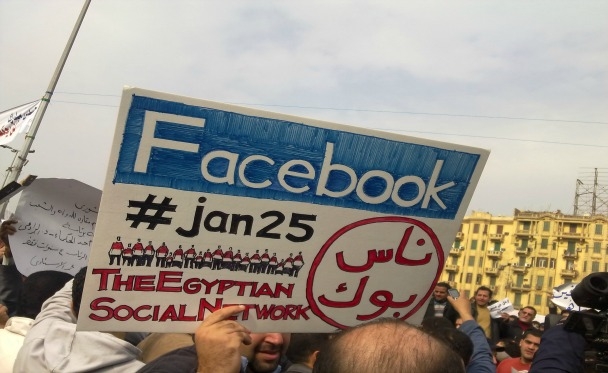
Media and Middle East Turmoil
The USC Center on Public Diplomacy and the USC Annenberg Center on Communication Leadership & Policy were pleased to co-host a round-table discussion about the media and Middle East Turmoil. News and social media played a crucial role as revolution sweeps through much of the Arab world. The panel discussed the media's galvanizing effect and what it means for the future of the Middle East and global politics.
Panelists included:
• Laurie Brand: Robert Granford Wright Professor and Professor of International Relations, USC
• Geoffrey Cowan: Director, USC Annenberg Center on Communication Leadership & Policy
• Jeremy Curtin – Senior Fellow, USC Annenberg Center on Communication Leadership & Policy
• Lydia Marcos: Projects Coordinator, Community Development Department at CID Consulting in Cairo, Egypt, and Master of Public Diplomacy alum (’09)
• Geneva Overholser: Director, School of Journalism, USC
• Philip Seib: Director, USC Center on Public Diplomacy
• Sandy Tolan: Associate Professor, School of Journalism, USC
Summary
At this event, panelists discussed the role of various media mechanisms in recent events in the Middle East, as well as the “labeling” of these events is a Western tendency (e.g. “Facebook” or “Twitter Revolution”). These recent events and their global announcements have transcended borders. Each panelist spoke on the differing modes of communication, but noted that U.S. International broadcasting is not a factor in these events. From the absence of VOA Arabic (now Radio Sawa) versus Al Jazeera and Al Arabiya’s overwhelming popularity to the prevalence of state media and its effect on Egypt’s credibility, the current communications climate was examined in-depth from both the U.S. and local perspectives. Philip Seib finished off the discussion by bringing up the topic of Internet penetration in Egypt – although Egypt has the largest number of users in the Arab world, that number is still relatively small percent of population. Nonetheless, Internet penetration and social media are inexorably challenging the speed of policy – leaders are running out of time to make decisions, and must instead practice “foreign policy on the run”.
Visit CPD's Online Library
Explore CPD's vast online database featuring the latest books, articles, speeches and information on international organizations dedicated to public diplomacy.











